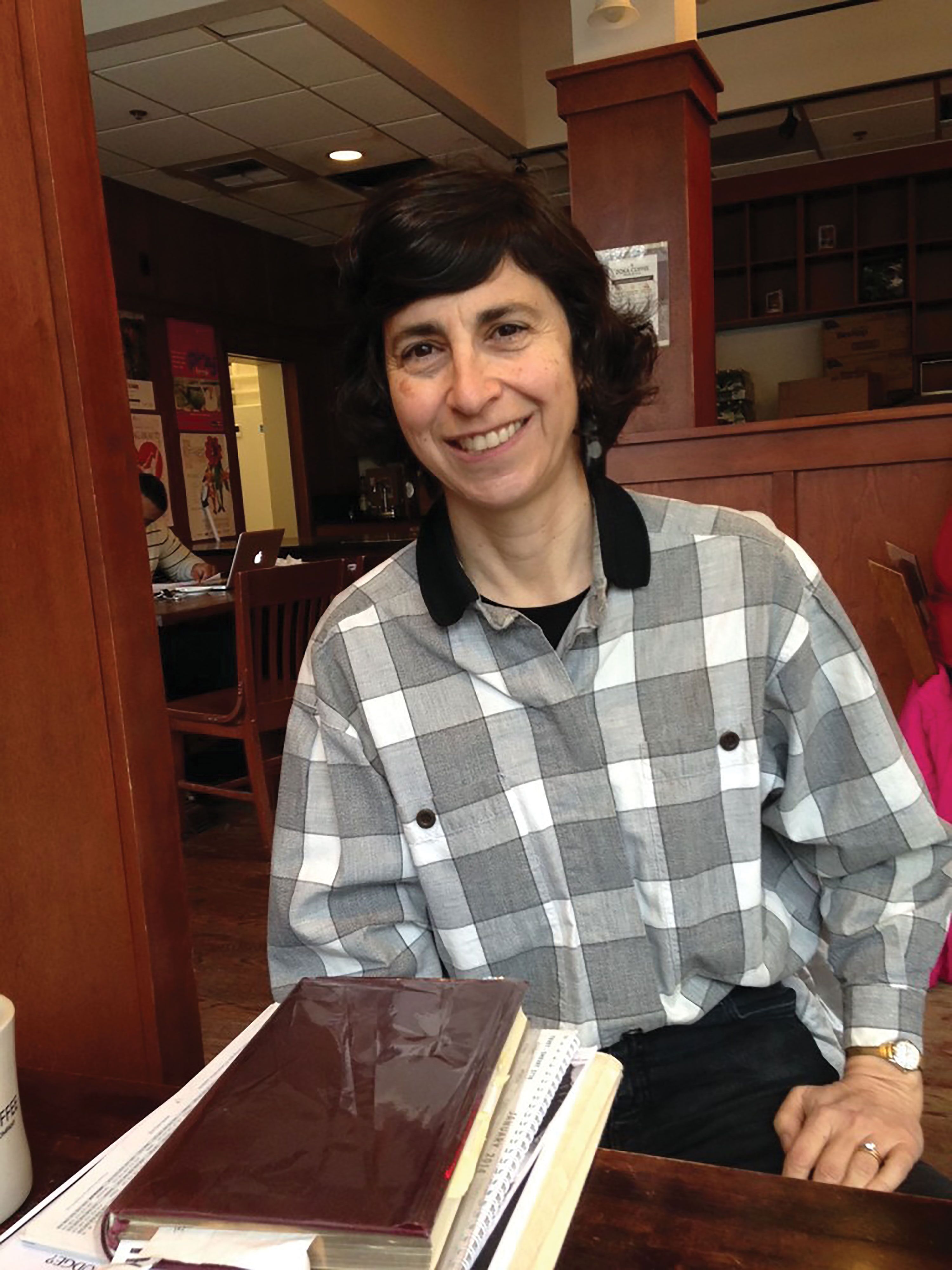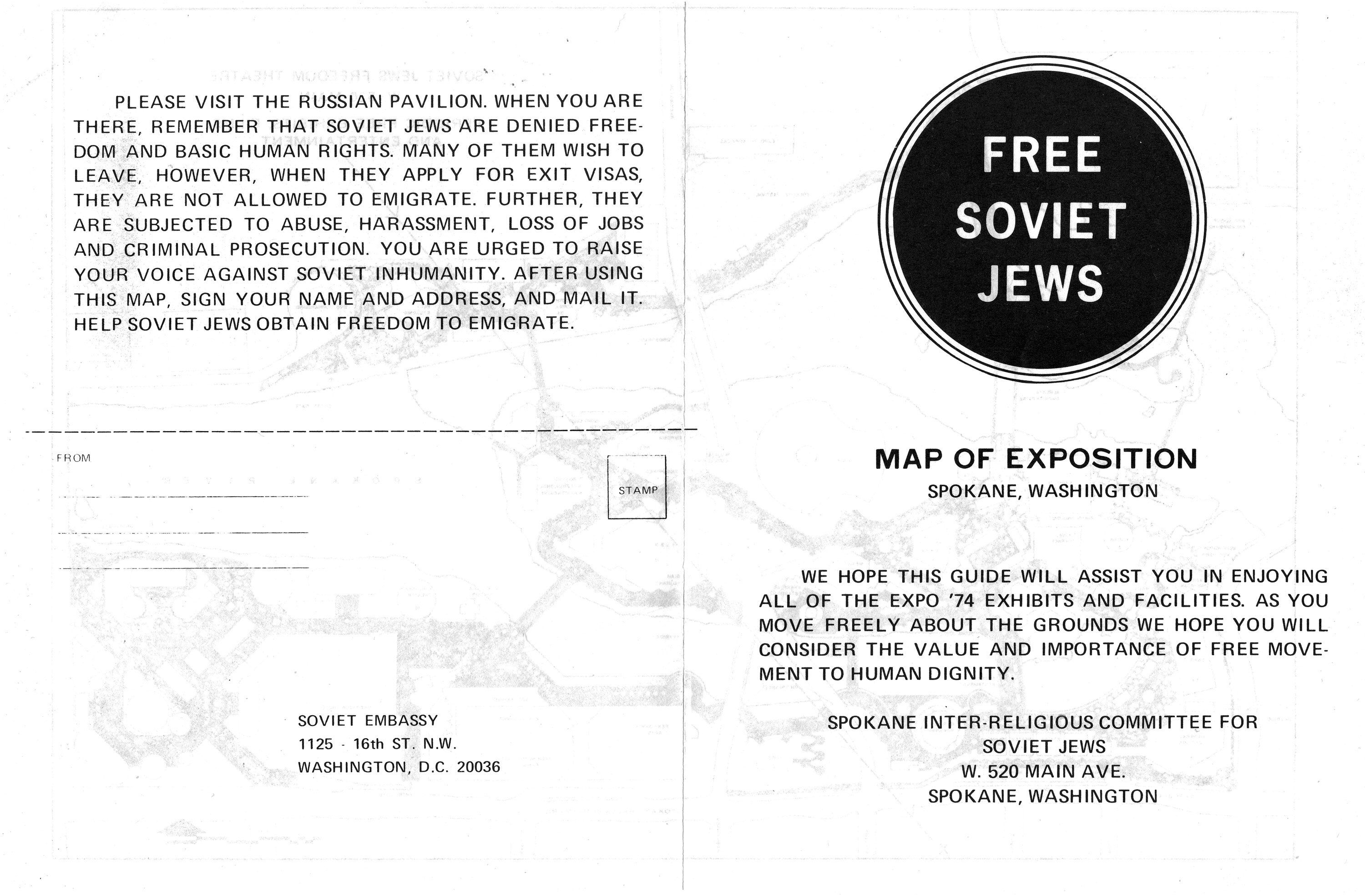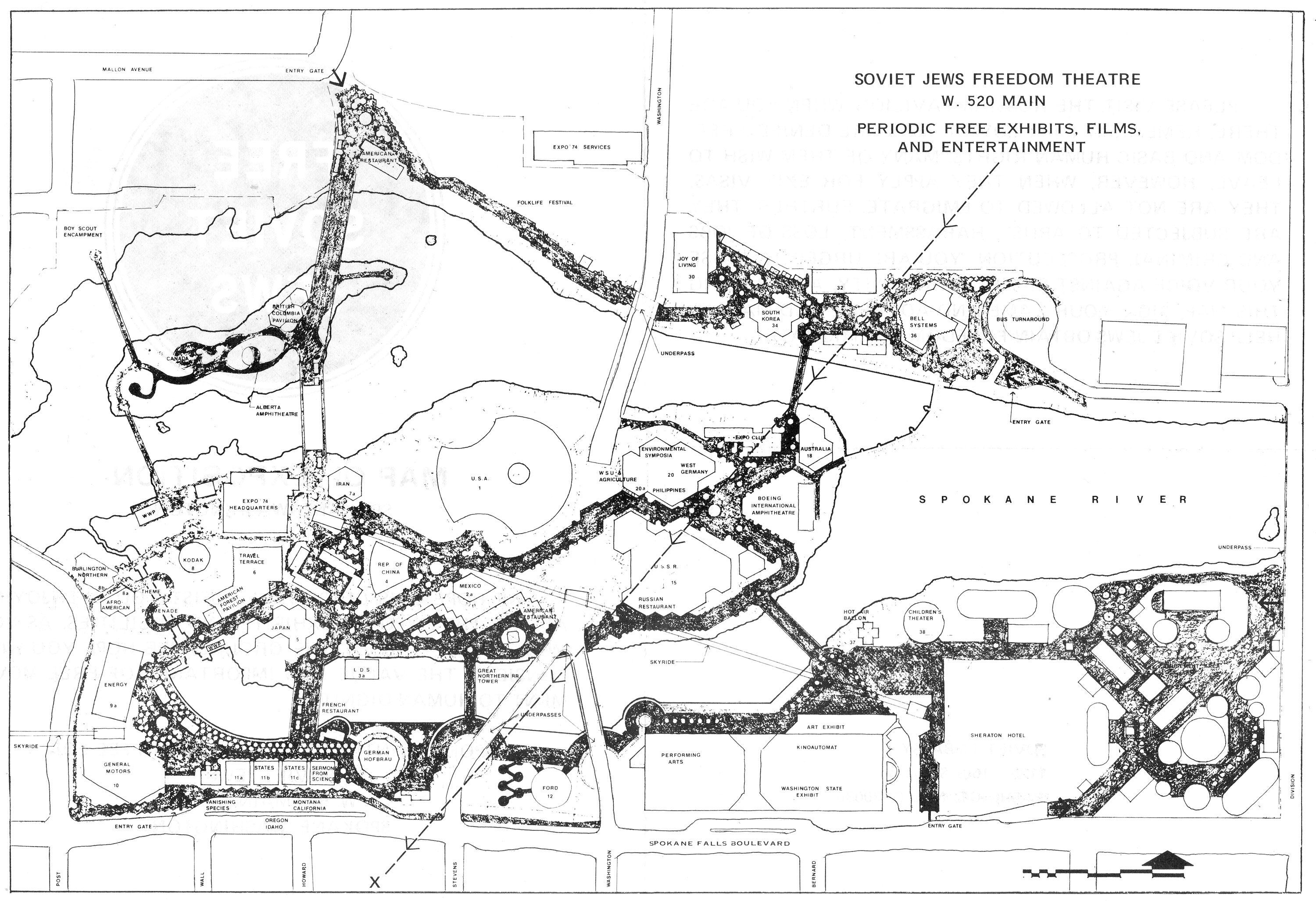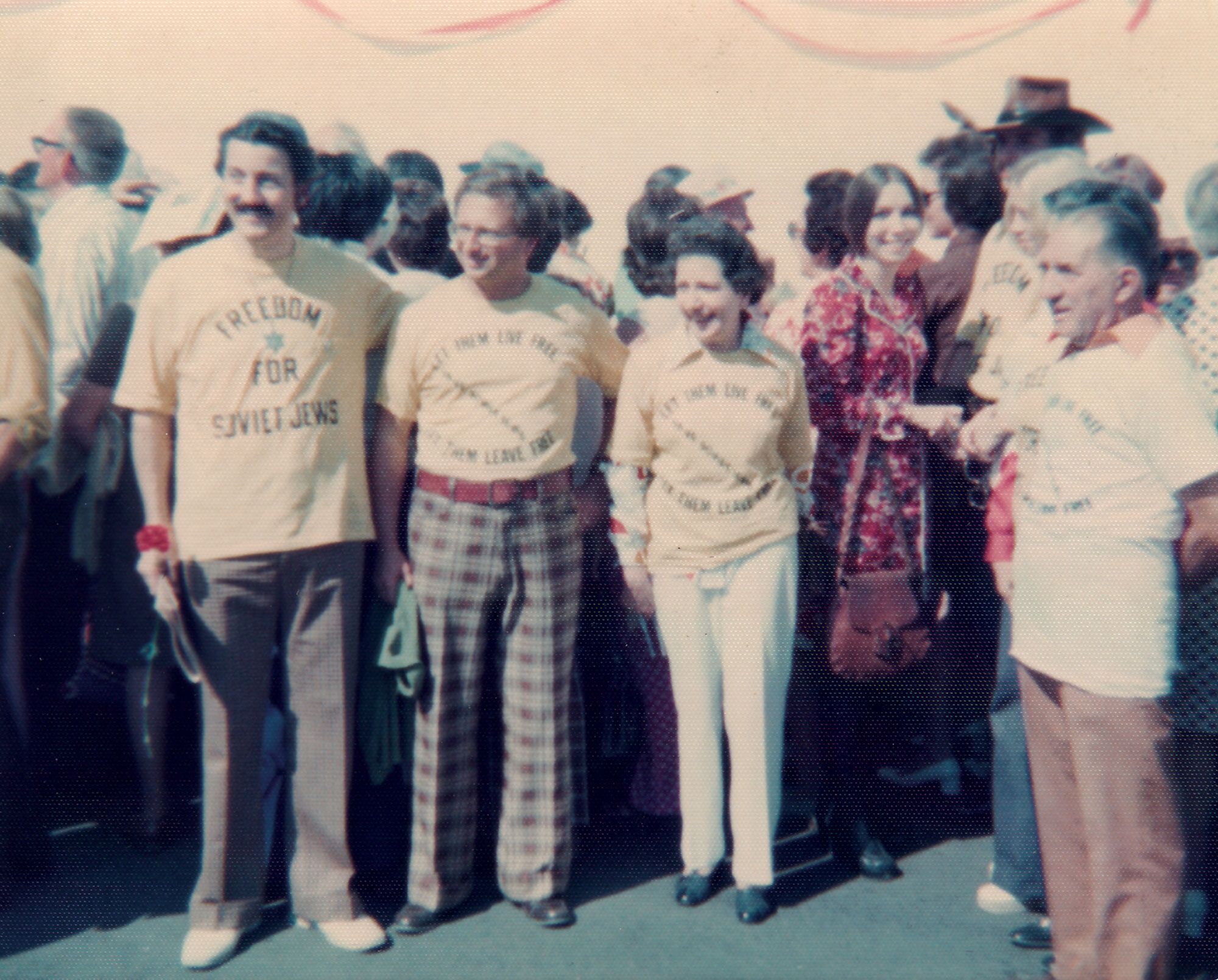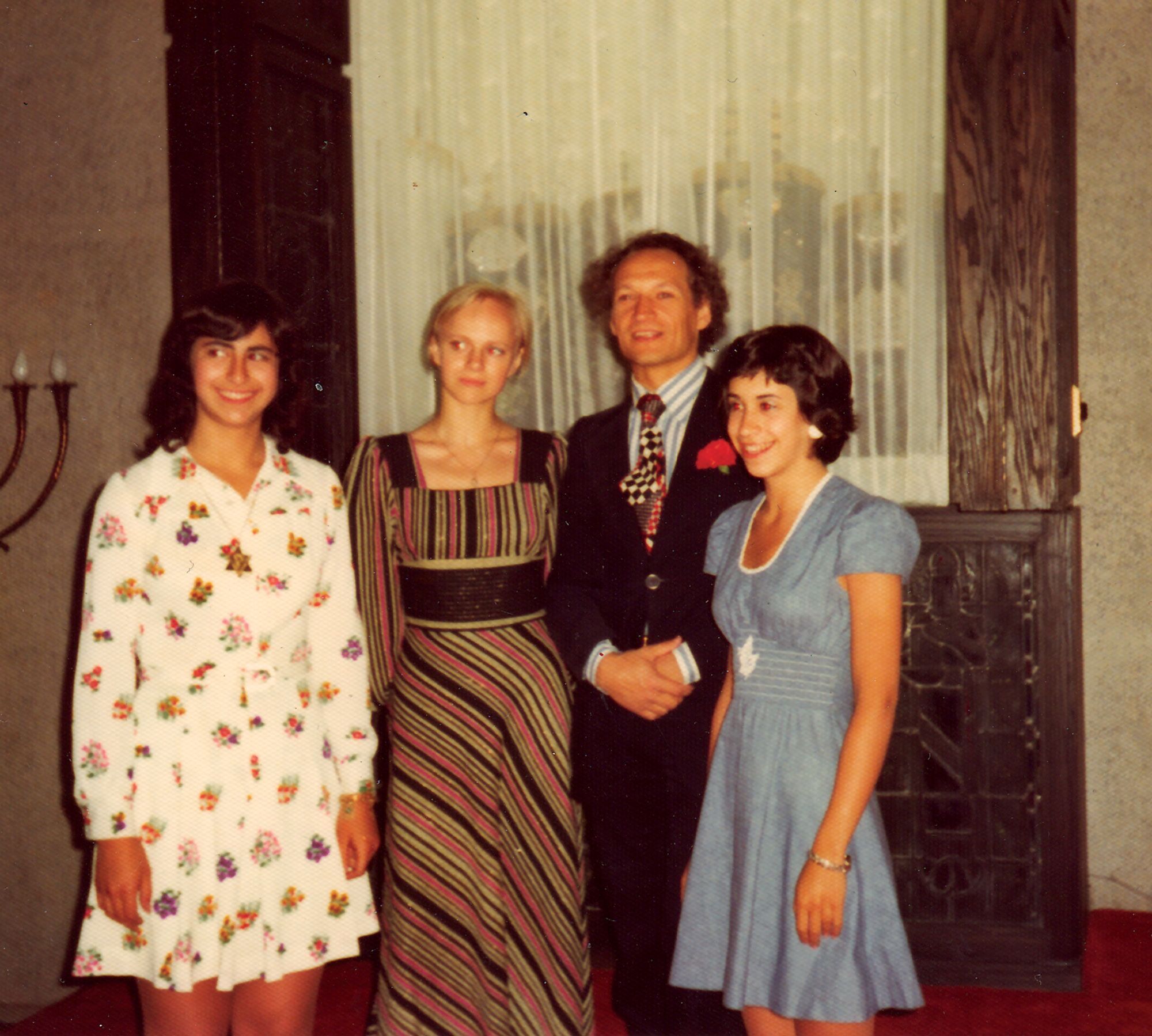“There was a rule that you couldn’t have any posters or signs on the exhibit grounds. So we put our message on T-shirts. There were only twenty Jews in my youth group; that was it. There weren’t hundreds of Jews you could call upon. So, on opening day, we started walking through the exhibit with these T-shirts on. We walked in the front door and out the back door and back in the front door in circles, and the Soviets thought there were hundreds of us! They went crazy, and they wanted to know who was paying us, because they couldn’t imagine anybody would do such a thing unless they were being paid. So they called the police, they wanted to have us arrested, and the press was there because it was the opening day of the world’s fair, it got press all over the country, which served our purposes quite well. So that was basically my job that summer, to go through the exhibit in my T-shirt every day as many times as I could.”
Later, Beth would take part in letter writing campaigns and lead protests at the University of Washington and Brandeis University. After college, she was one many students sent to the USSR by the Israeli government to report back on the treatment of Refuseniks and other Jews.
“In Vinnytsia, the first town we got to in the Ukraine, it was Chanukah. We knocked on the door and this guy answered and he said, ‘Shalom.’ And he let us in. He showed us, in his closet, he’s got a hatchet, because there’d been a pogrom in the next village and he wanted to be able to protect his family. This was the kind of fear that people were living with. And they couldn’t buy a menorah so he had a piece of wood with coins on it, and he had candles but he didn’t know the blessings, so we taught them the blessings."
“We went to the synagogue, and only old Jews were there. Young Jews couldn’t go, it was dangerous for them, they’d be reported back to the KGB by informers. The old guys went because they had nothing to lose at that point. And I remember when they said a prayer for the country, the guy behind me whispered under his breath, ‘God bless the State of Israel.’ That was their sort of a way of fighting back. I called home, and the first thing I said to my dad was, ‘Tell grandpa, thank you for leaving."
“They wouldn’t let them out because if they let the Jews out everyone would want to leave. Nobody wants to live under oppression. And that’s exactly what happened. Once they opened the doors for the Jews, people who weren’t Jewish claimed to be Jewish, so they could get out. Humans want to be free.”

